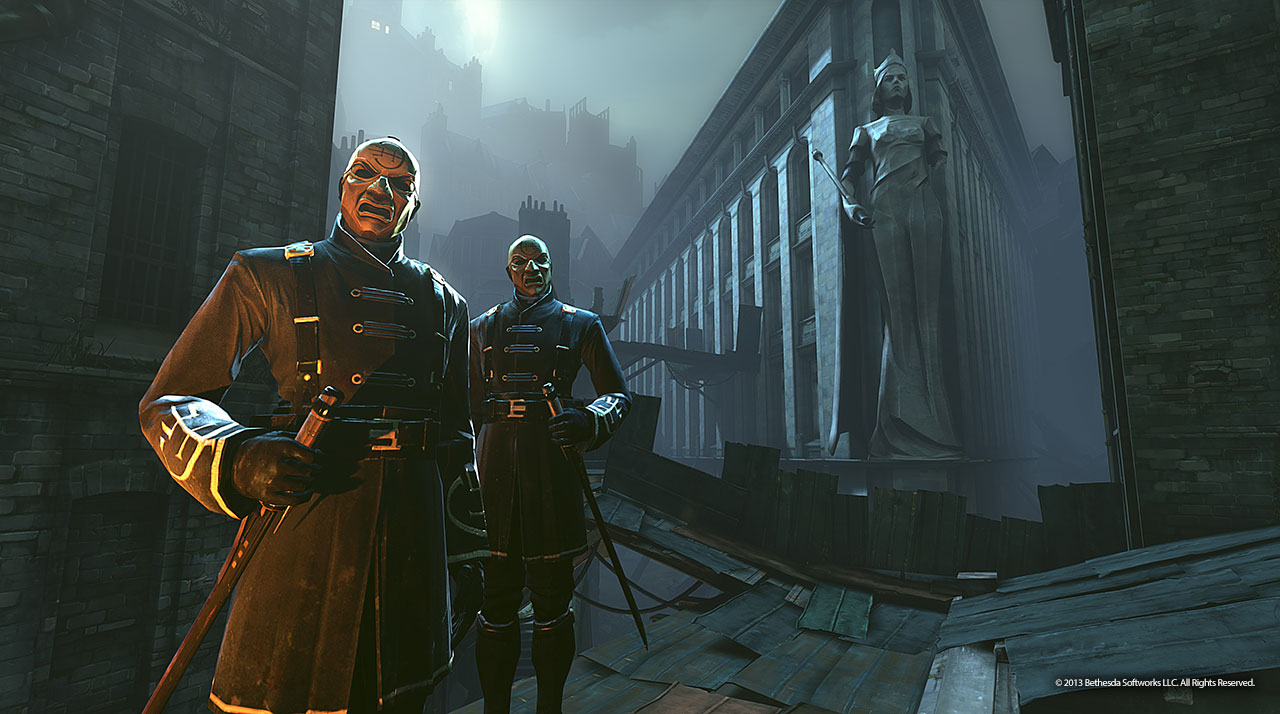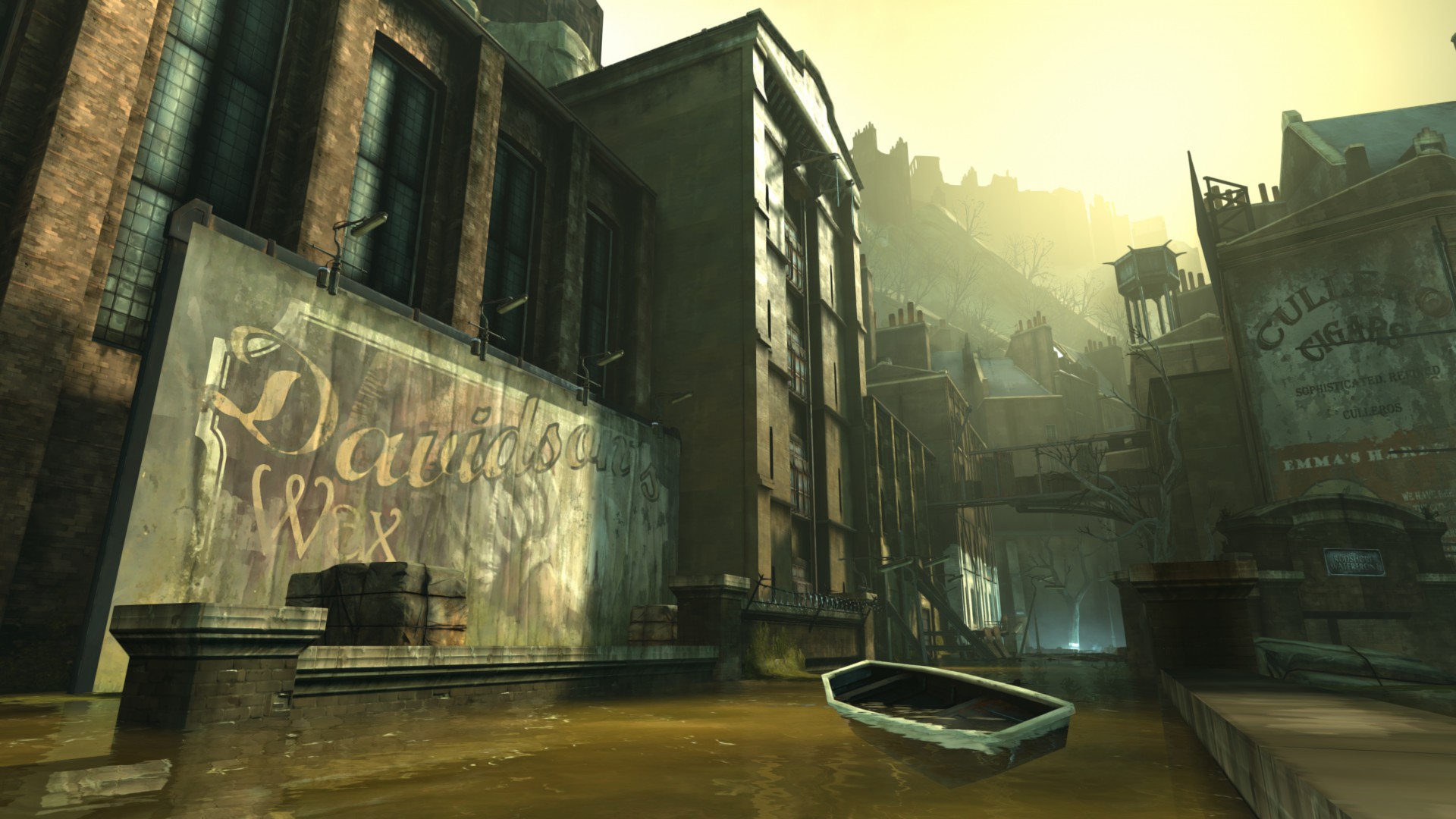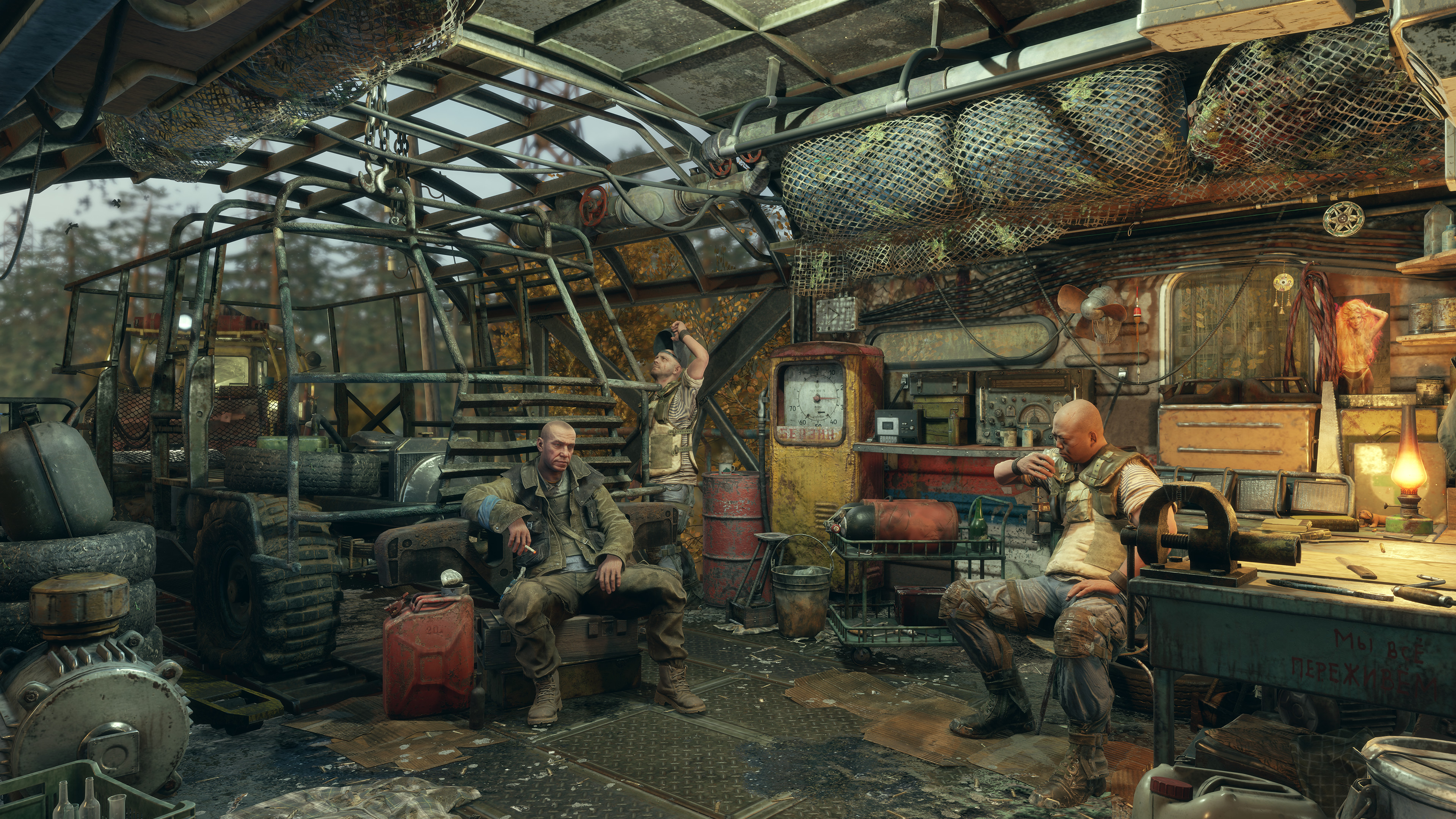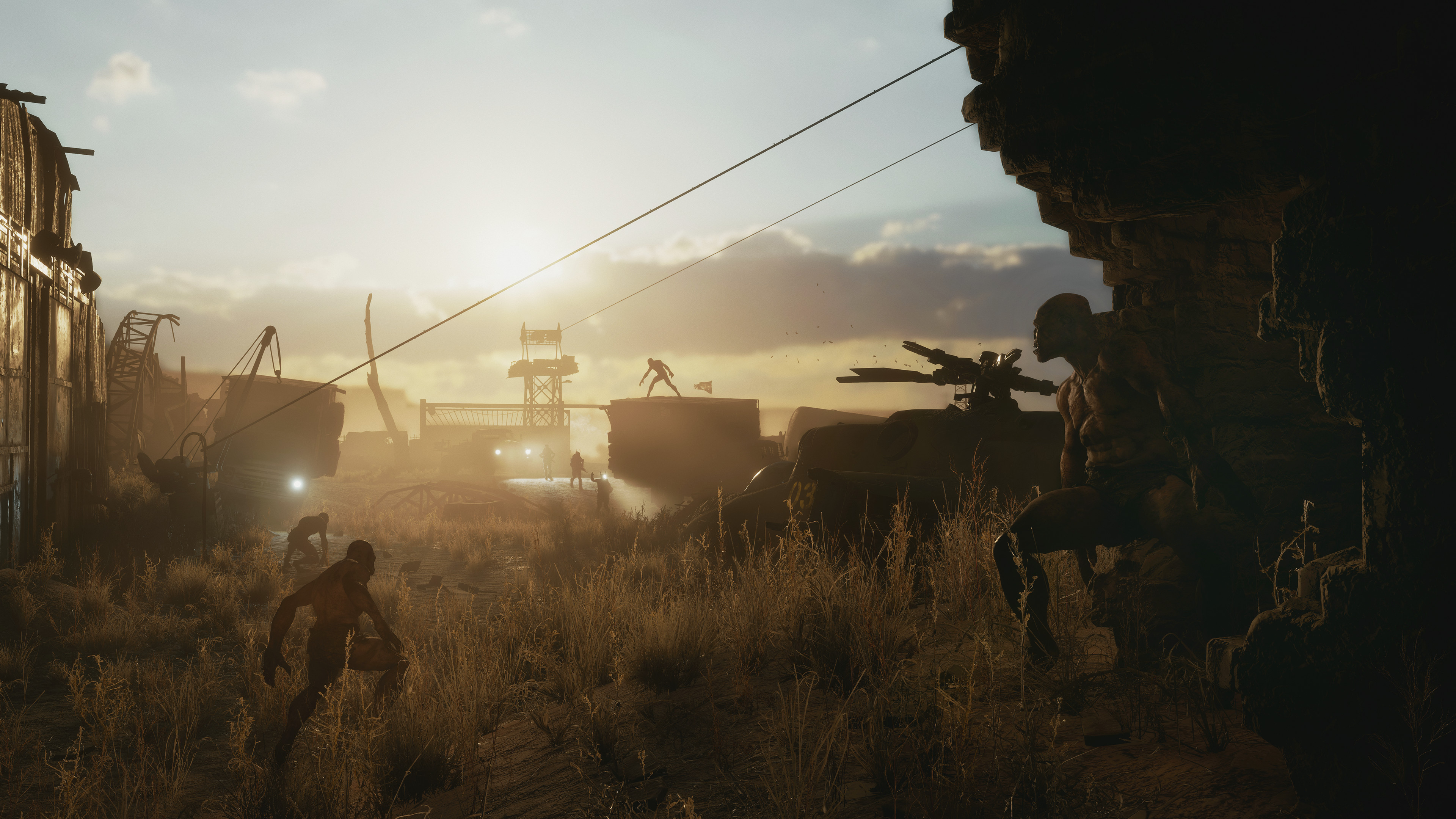When we talk about the end of the world in games, it’s mostly in the register of what it means for the player. I control some zombie-hating badass with a dead family who wrecks shit through the wasteland, or I’m a part of a crack team of revenant warriors resurrected from the corpse of the government to bend the world true again.
I don’t think these video games have much to tell us about our right now, our plague months, in the midst of COVID-19. It’s clear that the individualist fantasies that our games dip into so often just don’t hit right now. Self-quarantine, job loss, and the sudden cessation of public life are making so many of us yearn to be less individualist, more social, and the virus itself reveals how much of our lives are based on that connectedness.
And while we have these thoughts, the stock market and social groups both appear to be fragmenting in a thousand directions, the U.S. government is taking measures bail out large corporations and limit a mass amount of international travel, following the lead of governments around the world that are invoking emergency powers over their citizens. The response to COVID-19 has been to invoke and use the powers latent in our governing documents while also apparently delaying testing to keep numbers of cases artificially low.

If video games can be helpful here, or if any art can be helpful, it is perhaps in helping us imagine what comes after coronavirus is managed. When the breakdown is over and the crisis has been policed, what will we have given up? What will we need to reclaim? What privacy rights or rights of movement can be stolen from us from under our nose? If the world does not shatter into Mad Maxian nightmares and instead continues to solidify into an authoritarian mass, what games give us the tools to properly highlight points of interaction?
Our present nightmare demands that we consider the infinite grift, the infinite lockdown, and how we might resist or overcome it in the long struggle ahead. It’s appropriate to start with one of the most disturbing forms of it that we’ve seen in video games: Dishonored’s Dunwall.
The events of the first Dishonored take place almost entirely in a society in collapse. A rat plague is seeping through the city. The aristocrats throw parties and celebrate their wealth while the underclass dies in the streets of rat bites and always-strengthening gangs. The Lord Regent cordons off sections of the city, policing the citizens and keeping order with an iron fist. All the while, his agents and scientists crank away at ways to make life better. Maybe that’s a cure, but in the reality of the world it is perfectly fine if those inventions are better cages and more efficient policing devices.
The missions and fantasies of the game are, of course, that one person could walk through it all and shatter it like so much glass. The poor have no power, the gangs are too diffuse, and the rebels that back protagonist Corvo are too ineffective to do any serious work. The game takes a very video game perspective on the whole thing, shrugging its metaphorical shoulders and tasking the player with uprooting the regime so that something else might take its place. Players of the game might remember how complicated that is.

This central narrative pillar, though, is haunting in our current moment. How much power does the individual have? Not much. How far will a government go to control a plague and the people that carry it? Pretty far, it seems like. How much of that power will that government hold indefinitely? A lot.
The failure of Dishonored is that it gets stuck in the heroic stories that I mentioned at the start of this piece. There’s no Corvo in the real world. No heroic mystical libertarian is going to change the world for us. The masses that we see, the plague-addled and the quarantined and the working class, are not thought of as a people, as a collective, but instead just a lot of individuals. And when Dishonored suggests that the boot on a human face forever is part of a cycle of control, there’s no room for people to make themselves known and then craft a radical world in the image of community. In other words, the game shows us the end game of authoritarian plague management, but it doesn’t show us any possible response.
But another game about strict governmental control in the aftermath of disaster gives us some better leads. Metro Exodus isn’t a plague story, or at least not exclusively one. Bombs and worse have destroyed the surface, and the supposed remnants of humanity toil beneath the earth in a metro system. But the government has kept something secret: there’s life out there, and it’s not just mutated creatures and monstrous marauders. The game punches through the surface and puts the player into open-world situations where alliances and bloodbaths are equally possible, and it places a simple question in front of you: could you make a better world than these people have?

And this question is answered as a group, since the player character Artyom is accompanied by a crack team of military agents who have a similar goal in mind. They trek across apocalyptic Asia, on the hunt for anything and everything that might allow them to grow a new world, and encounter different ideologies and allies and enemies.
The backdrop of it all is a question of how to live now that the rules of governance that we once trusted no longer apply. Obviously the ruling body of the metro was interested in suppressing the masses and lying to them in order to keep social cohesion. As long as the horizon line of possible ways of living your life are defined, you know what your options are; the world outside the metro is dead, so you must stay here and live the best you can. Similarly, the despots and gangs that Artyom sees in the game’s various maps all have their own version of this.
What unites these approaches to governance, these ideologies that demand we see the world in a particular way, is a claim that the world cannot get better. It is an appeal from the top that wants to hold onto power by making sure that we know there’s nowhere else to go, and in a world where I am socially distancing for the sake of us all, that’s literalized in a particular way. It’s clear that we need to take precautions in this moment of global pandemic. It’s clear that the rat plague of Dunwall and the nuclear onslaught of Exodus had to be reacted to in a way that kept people safe.

But both of these games present a situation in which authoritarian power is maintained after the danger is over. They’re pieces of art that warn against a desire by some to universalize the disaster so that every moment becomes an excuse to police, to control, and the mark borders in ever-more-extreme ways. What these games demand we do is ask ourselves what comes next.
After all, we’re currently living in the midst of an economy in free fall, desperately being shored up by a cash machine. COVID-19 is spreading and killing at an alarming rate that’s closed a lot of businesses. A few cities are under a take shelter advisement. The United States is on the cusp of breaking under the weight of the virus, as we’re sitting on around 70,000 cases nationally at the time of writing..
People are being asked to sacrifice a lot. I don’t mean the NBA season or South By Southwest tickets. I mean those of us who work in fast food, hotel services, parking lots, and healthcare. I mean the bartenders and the janitors, the small grocers and the Wal Mart cashiers, all of whom are now on the frontlines of an epidemic that is barely revving up. Some of them are explicitly being told they need to sacrifice their income for the public good, and it is happening whether they like it or not. Others are implicitly putting their own health, and potentially lives, on the line to help others get the services and supplies that they need.
People with a lot to lose are being put in the position of the most risk. It’s the way our society is setup. Capitalism rewards the winners with flexibility and safety and punishes the losers with vulnerability.
And it’s in these moments that I find art like the games I discussed above so instructive, because they put the question to us in easy terms. When this passes, or at least becomes our new normal, then will we be happy with how the powerful have shored up that power? Will we allow them to hold the gains they are already attempting to make? Will we go happily into a world where airlines are bailed out and the workers are not?
Or will we recognize that we cannot simply reproduce the world before because that world is what gave us this thing that we’re all living through? Those of us who live through it all will end up being treated as a mass, thought of in aggregate numbers without testing or help, despite the fact that the rich have seemed to get everything they need at lightning speed already. And if we’re treated as a mass, then we might as well think like a mass.
from VICE https://ift.tt/2xHPjg2
via cheap web hosting
No comments:
Post a Comment